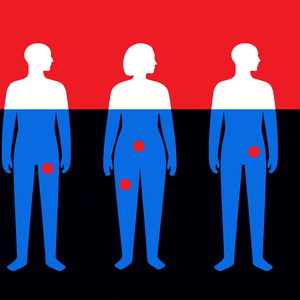If you’re 50 or older, try standing on one leg and holding it for 10 seconds. If you can do it, congrats! You’re likely pretty healthy (or at least have been keeping up with your Wii Sports balance board over a decade later). If you can’t, though, we have bad news: Your chance of dying in the next decade is twice that of those who can.
That’s the conclusion of a study published on Tuesday in the British Journal of Sports Medicine. Researchers found that middle-aged and older people faced a doubled risk of death from any reason in the following decade if they couldn’t stand on one leg for 10 seconds or longer. The findings suggest that balance assessments should be worked into routine health and fitness check ups.
“In this context, the availability of simple, inexpensive, reliable and safe balance assessment tools that could help predict survival would potentially be beneficial to health professionals evaluating and treating older adults,” the study authors wrote.
For the experiment, the team conducted health and physical check ups of roughly 1,700 participants aged 51 to 75 from 2009 to 2010. As part of the process, researchers asked volunteers to stand on one leg for 10 seconds, with their free foot resting on the back of their standing foot and their arms at their sides. They were also allowed three attempts on either foot.
Roughly 21 percent of participants failed the test. The likelihood of failure increased with age—people aged 71 to 75 failed more than half of the time (54 percent).
Over the monitoring period of the following 10 years, the study’s authors discovered that those who failed the test had significantly higher death rates over the course of 10 years. Roughly 17.5 percent of those who failed died within a decade, compared with 4.6 percent of those who passed the test. Researchers also found that those who did fail tended to be unhealthier “with a higher percentage of participants having coronary artery disease, hypertension, dyslipidemia and obesity,” they wrote.
All told, when accounting for sex, age, and pre-existing medical conditions, those who failed the 10-second test had an 85 percent higher risk of death due to any cause in the next 10 years.
Of course, this is an observational study with a lot of correlation involved. Researchers don’t know for certain what’s causing it—though it’s very likely poor health. Regardless, the team wrote that the 10-second test “provides rapid and objective feedback for the patient and health professionals regarding static balance.”






